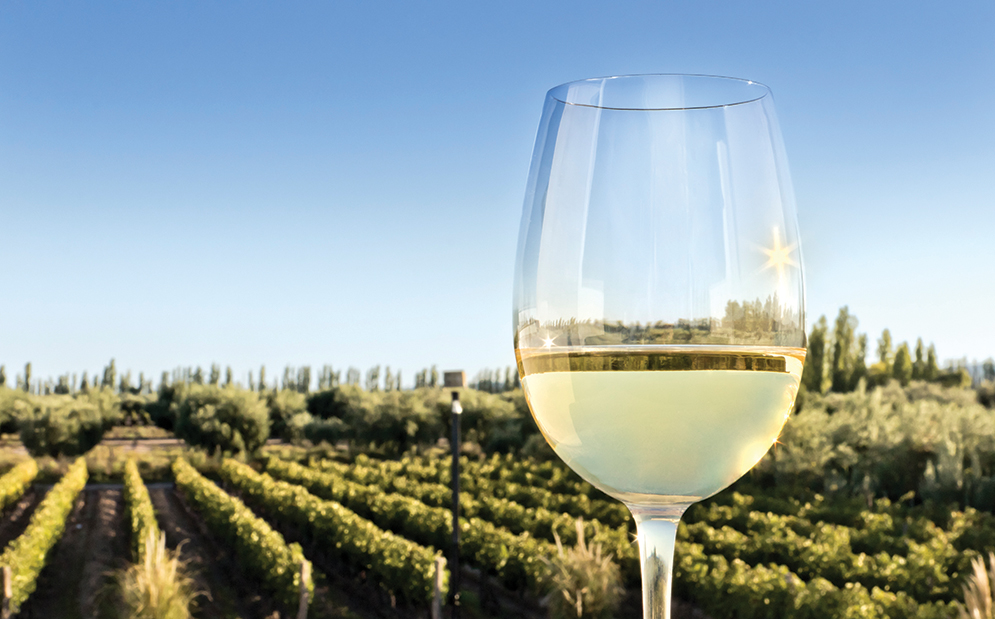Sam Owens, owner of Thirsty, asks whether it’s time for a rethink when it comes to off-dry wines
Over the last decade or two, wines that are less than totally dry have had a tough time of it. Memories of sickly Liebfraumilch and Lambrusco have pushed millions of drinkers firmly into the ‘dry wine only’ camp. But while the nasty, confected sugarbombs of yesteryear can be happily consigned to the history books, let’s make sure we don’t throw the proverbial baby out with the bathwater.
One of the greatest advantages of off-dry wines is their lower alcohol levels – with all the practical and health benefits this entails. Remember, alcohol comes from fermenting the sugars naturally present in the grapes, so if you have ripe grapes and are able to allow full fermentation of all the sugars, you’ll end up with a higher alcohol level in the wine. But if your fermentation stops earlier (either naturally or because of human intervention), some of those natural sugars won’t have fermented into alcohol. The result? A 7-8% ABV wine with a bit more sugar than normal. This is what we term ‘off-dry’.
Yes, it was guilty of many sugary wine crimes in the past, but Germany is arguably the place to look for the world’s loveliest off-dry white wines. Part of this is down to geography and climate. Germany is a relatively cool grape-growing country, and cooler countries produce grapes that tend to have higher acidity levels. When you get the balance right between relatively high acidity and sugar in a wine, the effects can be stunning. The Mosel Valley is Germany’s second most northerly wine region, and has managed to perfect this balancing act ever since the Romans rocked up and started planting vines a couple of thousand years ago. Riesling is the main grape variety: it is the perfect leading cast member to pull off this ‘acidity + sugar’ trick.
“Yes, it was guilty of many sugary wine crimes in the past”
Our brilliant new Mosel producer Matthias Meierer grows nothing but Riesling. He does make some dry wines with very little unfermented sugar left in the wine. But, for us, the Mosel’s unique style calls for a little more sugar to counterbalance the naturally high acidity from such a relatively cool area. We’re importing four of Matthias’s wines, ranging from the light and eminently neckable one-litre bottles of the house wine (still a little off-dry), through a couple of other off-dry wines (the Feinherb and the Kabinett), right up to the positively sweet Auslese. None are more than 11% ABV; most are under 10%. When you try them, there is a luscious fruitiness that comes from the slightly higher sugar levels, but this is balanced against the freshness that comes from the acidity. They are not cloying or sickly. They are truly delicious and utterly moreish.
The Mosel isn’t the only region in Germany to make great off-dry whites. Our man Nico Espenschied at Espenhof down in the Rheinhessen region, west of Frankfurt, makes a beautiful off-dry blend called Weisses Espenblatt. It is mainly Riesling, with a bit of Gewürztraminer and Scheurebe in the mix. The climate is a little warmer here than in the Mosel further north, so the wine tastes riper and rounder, but with a freshness that comes from the relatively high acidity in the wine. Again, the alcohol is low at only 11% ABV.
There are few more suitable wines for quaffing on the terrace during the warmer months this summer – and as a bonus, they’re great food wines, too – especially with Asian and spicy foods. The stronger fruity flavours that come with that higher sugar level give these wines enough oomph to stand up to the stronger flavours in Asian cuisine. These are wines that offer superb quality, coupled with great value.
During July, Wines of Germany are celebrating 31 days of Riesling, a great time to enjoy and discover Rieslings. Thirsty is offering 10% off all Rieslings for the month of July – join us at Thirsty Chesterton Road or at the Thirsty Riverside to find out more.
Top Picks
Meierer Riesling Feinherb 2015 £13.10
Meierer Riesling Kabinett Fuder 8 2015 £13.60
Meierer Riesling 2015 (1L) £14.30
Espenhof Weisses Espenblatt 2015 £12.10

